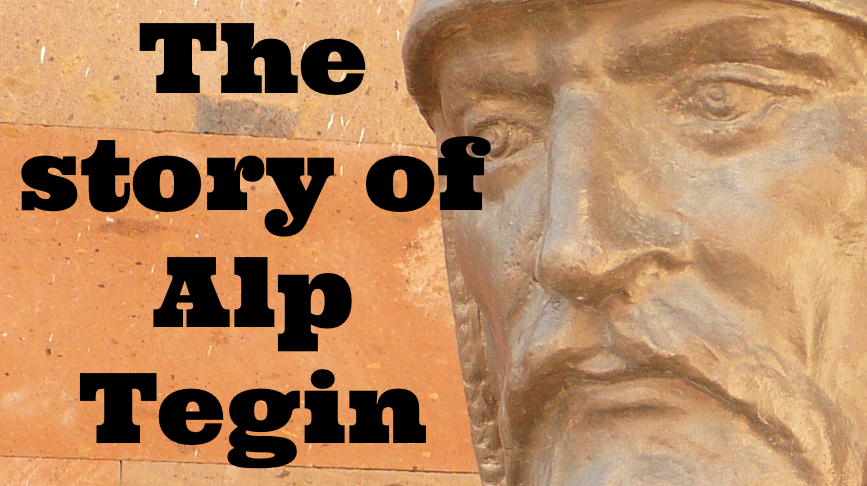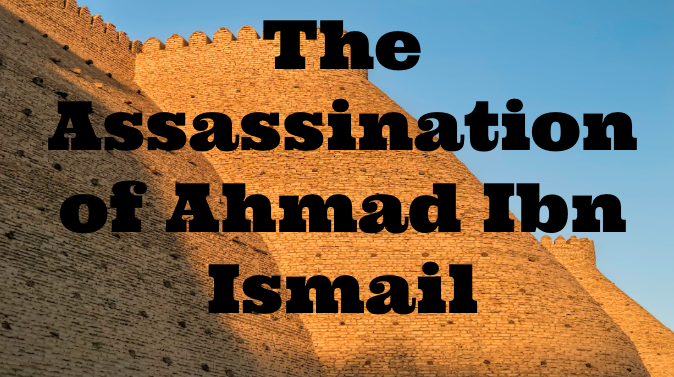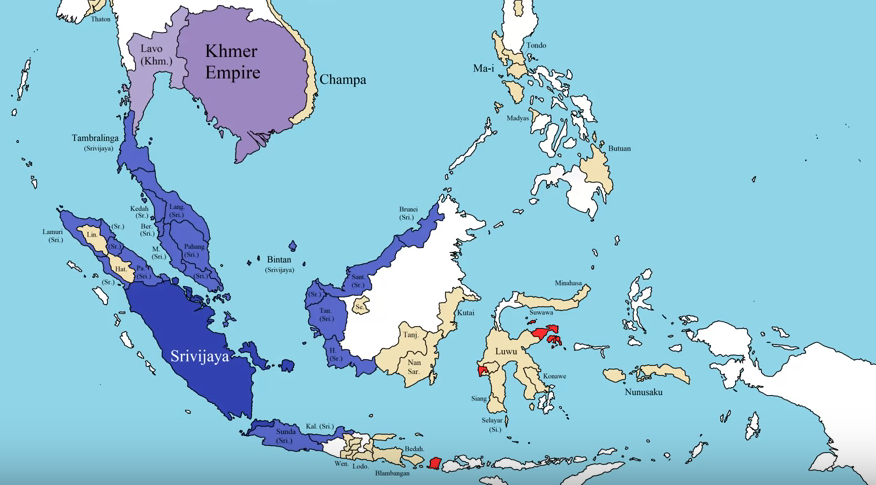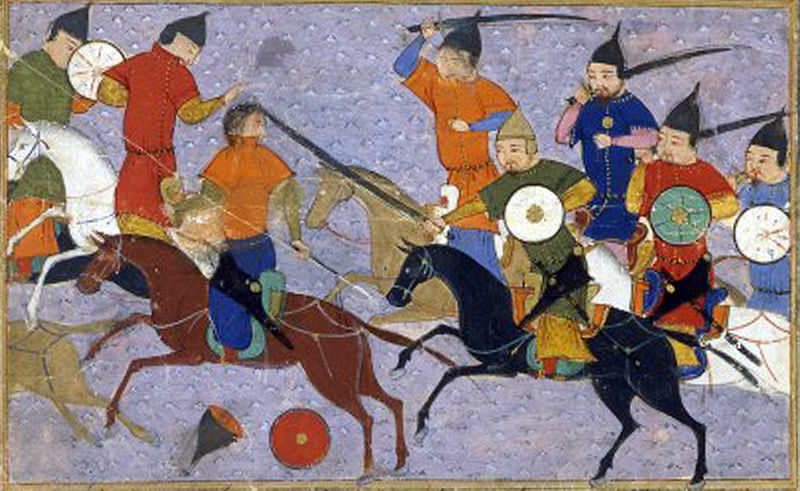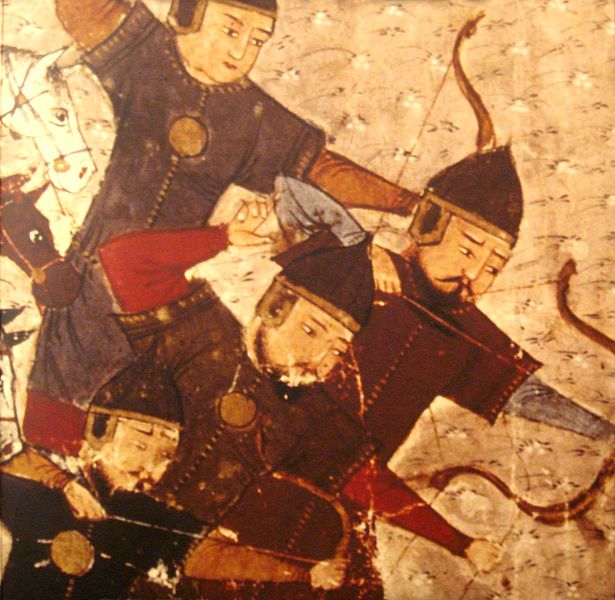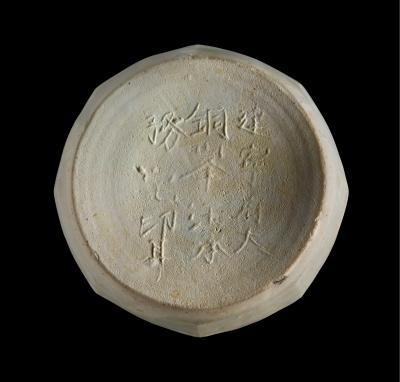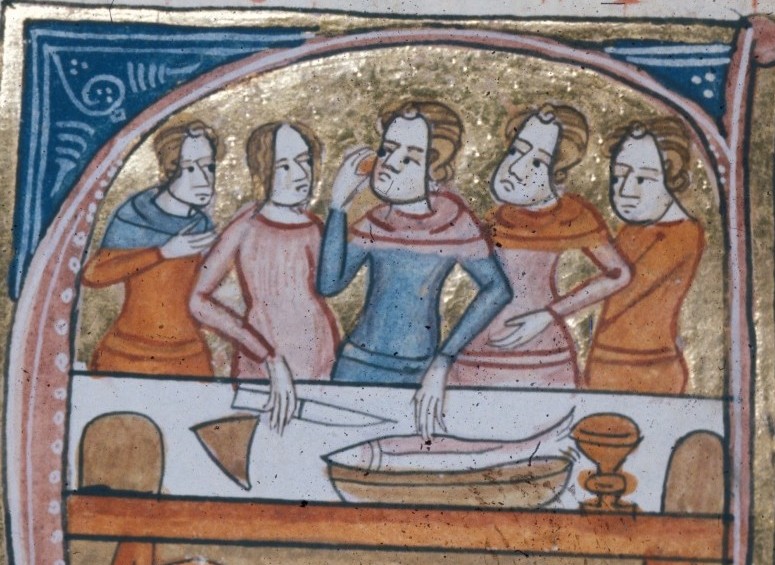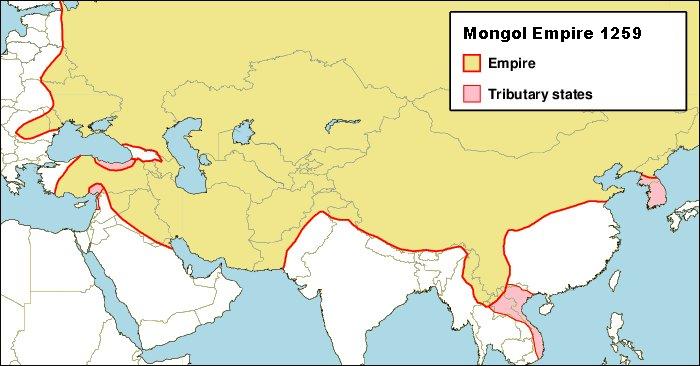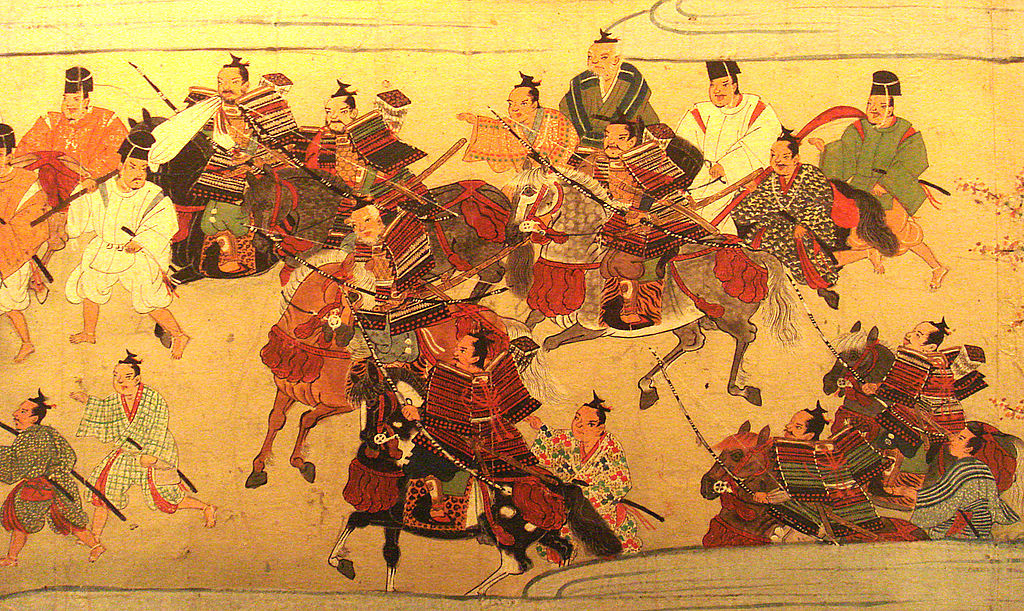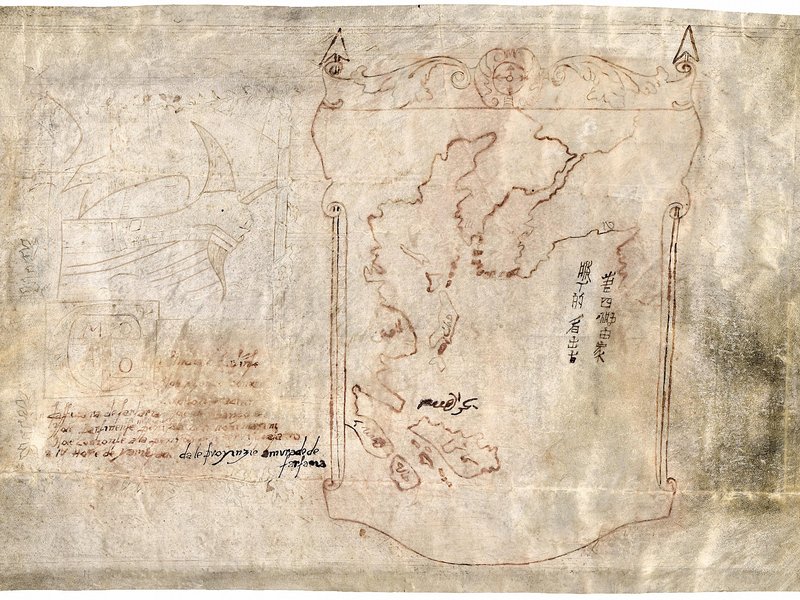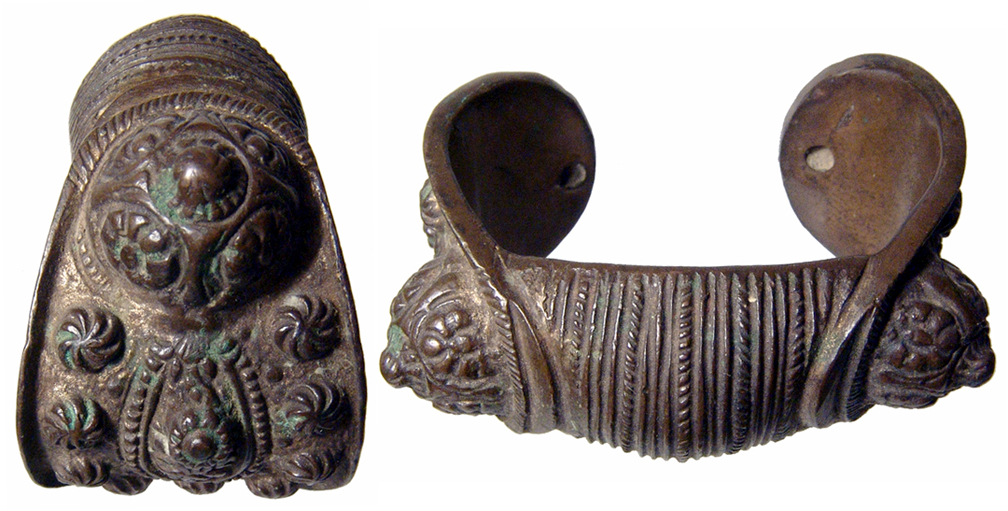The slave who founded an empire: The story of Alp Tegin
In the tenth century Alp Tegin would find himself serving as a slave soldier for one empire. He would rise through the ranks, and get to the heights of political power. When his fortunes turned, he would embark on a campaign to create his own empire.
The Geopolitics on the Silk Road: Resurveying the Relationship of the Western Türks with Byzantium through Their Diplomatic Communications
These empires attempted to take advantage of the newly shaped situation arising after such great movements strategically, each in their own interest. How did they achieve their goals and what problems were they confronted with?
The Assassination of Ahmad Ibn Ismail: Power Struggles in the Samanid Empire
The emir Ahmad ibn Ismail was assassinated in the year 914. This is the story of why he was killed and the power struggle that took place in the aftermath of his death.
How the borders within Southeast Asia changed during the Middle Ages
Looking at the development of empires, kingdoms and states in Southeast Asia during the Middle Ages. Here are seven videos that explain the changing borders.
Singapore in the 14th century
This presentation aims to arouse curiosity and questions about Singapore’s history by providing an overview of early Singapore’s connections with the region and beyond.
The Shortcomings of the Mongol Art of War as seen in China, Korea and Eastern Europe
This paper will briefly discuss the nature of the Mongol armies and some of their successes before exploring their shortcomings in a select number of regions
Medieval tower in Afghanistan collapses
One of the medieval towers in the Afghan city of Ghazni has collapsed, with video footage showing its dramatic fall.
Archaeologists unearth more thousand-year old mysterious jars in Laos
Australian archaeologists have discovered 15 new sites in Laos containing more than one hundred 1000-year-old massive stone jars possibly used for the dead.
The fall of the Angkor was gradual, not dramatic, researchers find
It has long been believed that the medieval Cambodian city of Angkor had an abrupt collapse. Researchers from the University of Sydney believe that it underwent a gradual decline.
The Turks: The Medieval World’s Most Martial People
They were scouts, raiders, skirmishers, heavy cavalry, and shock cavalry all in one; and could operate as infantry as well if the need arose.
The Look of Medieval Ethnography: William of Rubruck’s Mission to Mongolia
Reads William of Rubruck’s mission to Asia as an instance of premodern ethnographic representation and the shape of the precolonial European ethnographic gaze upon Asia.
The Vigilante Empire: The Pinnacle of Saffarid Power and the Dynasty’s Fall from Grace
As Yaqub ibn Layth gained power and followers, his ambitions grew, ultimately leading to a confrontation with the Abbasid Caliphate.
The Coppersmith Vigilante: The Rise of the Saffarids
During the ninth century a simple craftsmen would take up arms, hoping to put an end to the warfare and violence plaguing his corner of the world. In the first part of the story of Saffarid Dynasty, Adam Ali tells the story of coppersmith who would form an empire and challenge the rulers of Baghdad.
Medieval city of Koh Ker may have been inhabited for centuries, study finds
Ecological data reveals urban populations lasted long after royal abandonment of the Khmer city in the 10th century.
A shipwreck and an 800-year-old ‘made in China’ label reveal lost history
Centuries ago, a ship sank in the Java Sea off the coast of Indonesia. The wooden hull disintegrated over time, leaving only a treasure trove of cargo.
Nomads were setting food trends along the Silk Roads
‘Nomadic groups likely had access to a wider variety of foods. Through their mobility, they promoted far-reaching networks along the Silk Road, and therefore had great potential to influence trends and cultural changes’
How the borders within Asia changed during the Middle Ages
Here are six videos to show the rise and fall of kingdoms, states and empires on the continent of Asia, including during the medieval period.
Medieval European Medicine and Asian Spices
This article aimed to explain the reasons why Asian spices including pepper, ginger, and cinnamon were considered as special and valuable drugs with curative powers in the Medieval Europe.
Eastward Voyages And the Late Medieval European Worldview
This thesis treats the journeys as medieval Europe’s interaction with Asia, outlining how travellers formed their perceptions of ‘the East’ through their encounters with Asian people and places.
Millions of people are descended from Genghis Khan and 10 other Asian dynastic leaders, researchers find
Geneticists from the University of Leicester have discovered that millions of modern Asian men are descended from 11 powerful dynastic leaders who lived up to 4,000 years ago – including Mongolian warlord Genghis Khan.
The Mongol Empire: The State of the Research
The study of the Mongol Empire has made enormous strides in the past two decades, and its most notable impact is the shift of seeing the Empire not only in national or regional terms but from a holistic perspective, in its full Eurasian context.
Maritime Southeast Asia: The View from Tang-Song China
The following are annotated, critical translations of monographs from the Older and Newer Tang Histories concerning the foreign peoples and kingdoms of Maritime Southeast Asia.
A First Escape from Poverty in Late Medieval Japan: Evidence from Real Wages in Kyoto (1360-1860)
This paper offers a first investigation of long-term trends in Japanese living standards from the mid-14th to the mid-19th century using urban daily wages and price data for a number of basic commodities.
Did Marco Polo go to Alaska?
A set of documents, brought to United States by an Italian immigrant, may reveal new details about Marco Polo’s travels in Asia, including that he possibly explored and mapped Alaska.
Banditry and the Clash of Powers in 14th-Century Thrace: Momcilo and his Fragmented Memory
In the 14th century, a time of civil wars, religious and dynastic strifes, epidemics, natural disasters and miserable living conditions for the wider strata in the cities and the countryside that increased migratory movements, banditry, an indigenous phenomenon in the Balkan mountainous regions, intermingled with the intensified political struggles.
